Filter by
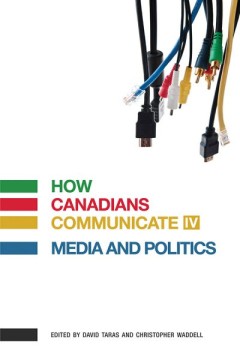
How Canadians Communicate IV Media and Politics
With contributions from such diverse figures as Elly Alboim, Richard Davis, Tom Flanagan, David Marshall, and Roger Epp, How Canadians Communicate IV is the most comprehensive review of political communication in Canada in over three decades – one that poses questions fundamental to the quality of public life.
- Edition
- -
- ISBN/ISSN
- 978-1-926836-81-2
- Collation
- -
- Series Title
- -
- Call Number
- -
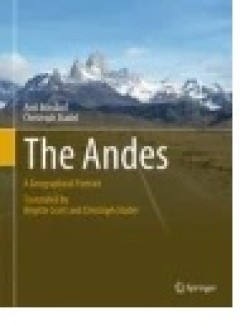
The Andes
This volume is the first attempt for decades to present a complete overview of the longest mountain chain on the planet – a region of remarkable climatic, floristic and geologic diversity, where advanced civilization developed well before the arrival of the Spanish. Today the Andes continue to be characterized by their ethnic, demographic, cultural and economic diversity, as well as by the di…
- Edition
- -
- ISBN/ISSN
- 978-3-319-03530-7
- Collation
- XIV, 368
- Series Title
- -
- Call Number
- -
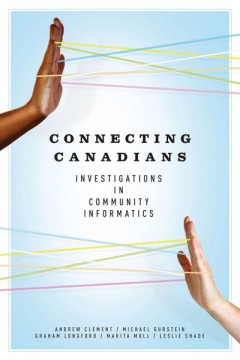
Connecting Canadians Investigations in Community Informatics
Funded for four years by the SSHRC’s Initiative for the New Economy, CRACIN systematically studied a wide variety of Canadian community ICT initiatives, bringing perspectives from sociology, computer science, critical theory, women’s studies, library and information sciences, and management studies to bear on networking technologies. A comprehensive thematic account of this in-depth researc…
- Edition
- -
- ISBN/ISSN
- 978-1-926836-04-1
- Collation
- -
- Series Title
- -
- Call Number
- 518 pages
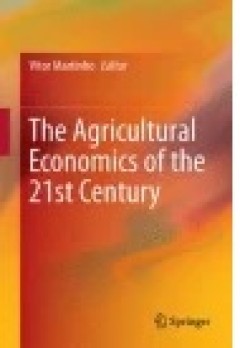
The Agricultural Economics of the 21st Century
This publication provides insight into the agricultural sector. It illustrates new tendencies in agricultural economics and dynamics (interrelationship with other sectors in rural zones and multifunctionality) and the implications of the World Trade Organization negotiations in the international trade of agricultural products. Due to environmental problems, availability of budget, consumer p…
- Edition
- -
- ISBN/ISSN
- 978-3-319-09471-7
- Collation
- X, 158
- Series Title
- -
- Call Number
- -

Bomb Canada and Other Unkind Remarks in the American Media
Canada and the United States. Two nations, one border, same continent. Anti-American sentiment in Canada is well documented, but what have Americans had to say about their northern neighbour? Allan examines how the American media has portrayed Canada, from Confederation to Obama’s election. By examining major events that have tested bilateral relations, Bomb Canada tracks the history of anti-…
- Edition
- -
- ISBN/ISSN
- 9781897425497.01
- Collation
- -
- Series Title
- Global Peace Studies
- Call Number
- -
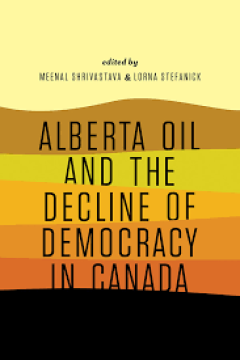
Alberta Oil and the Decline of Democracy in Canada
In probing the impact of Alberta’s powerful oil lobby on the health of democracy in the province, contributors to the volume engage with an ongoing discussion of the erosion of political liberalism in the West. In addition to examining energy policy and issues of government accountability in Alberta, they explore the ramifications of oil dependence in areas such as Aboriginal rights, environm…
- Edition
- -
- ISBN/ISSN
- 9781771990301
- Collation
- -
- Series Title
- -
- Call Number
- -

Without Apology Writings on Abortion in Canada
With contributions by Aalya Ahmad, Tracey L. Anderson, Jane Cawthorne, Peggy Cooke, Shannon Dea, Carolyn Egan, Linda Gardner, Laura Gillespie, Sterling Haynes, E.K. Hornbeck, Clarissa Hurley, “Dr. James”, H. Bindy K. Kang, Kristen, Natalie Lochwin, Mackenzie, Colleen MacQuarrie, Ruth Miller, Judith Mintz, Erin Mullan, Jen Rinaldi, Sadie Roberts, Martha Solomon, Shannon Stettner, Karen Stote…
- Edition
- -
- ISBN/ISSN
- 9781771991599.01
- Collation
- -
- Series Title
- -
- Call Number
- 366 pages
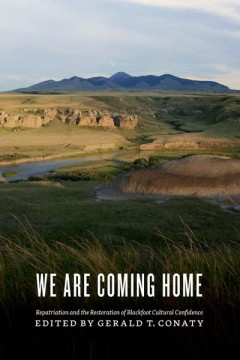
We Are Coming Home Repatriation and the Restoration of Blackfoot Cultural Co…
We Are Coming Home is the story of the highly complex process of repatriation as described by those intimately involved in the work, notably the Piikani, Siksika, and Kainai elders who provided essential oversight and guidance. We also hear from the Glenbow Museum’s president and CEO at the time and from an archaeologist then employed at the Provincial Museum of Alberta who provides an inside…
- Edition
- -
- ISBN/ISSN
- 9781771990172.01
- Collation
- -
- Series Title
- -
- Call Number
- 304 pages
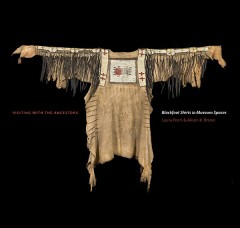
Visiting With the Ancestors Blackfoot Shirts in Museum Spaces
In the pages of this beautifully illustrated volume is the story of an effort to build a bridge between museums and source communities, in hopes of establishing stronger, more sustaining relationships between the two and spurring change in prevailing museum policies. Negotiating the tension between a museum’s institutional protocol and Blackfoot cultural protocol was challenging, but the expe…
- Edition
- -
- ISBN/ISSN
- 9781771990370.01
- Collation
- -
- Series Title
- -
- Call Number
- 10.5 x 10, 232 pages

Texts, Textual Acts and the History of Science
The book presents the outcomes of an innovative research programme in the history of science and implements a Text Act Theory which extends Speech Act Theory, in order to illustrate a new approach to texts and textual communicative acts. It examines assertives (absolute or conditional statements, forecasts, insurance, etc.), directives, declarations and enumerations, as well as different types …
- Edition
- -
- ISBN/ISSN
- 978-3-319-16444-1
- Collation
- IX, 430
- Series Title
- Archimedes
- Call Number
- -
 Computer Science, Information & General Works
Computer Science, Information & General Works  Philosophy & Psychology
Philosophy & Psychology  Religion
Religion  Social Sciences
Social Sciences  Language
Language  Pure Science
Pure Science  Applied Sciences
Applied Sciences  Art & Recreation
Art & Recreation  Literature
Literature  History & Geography
History & Geography